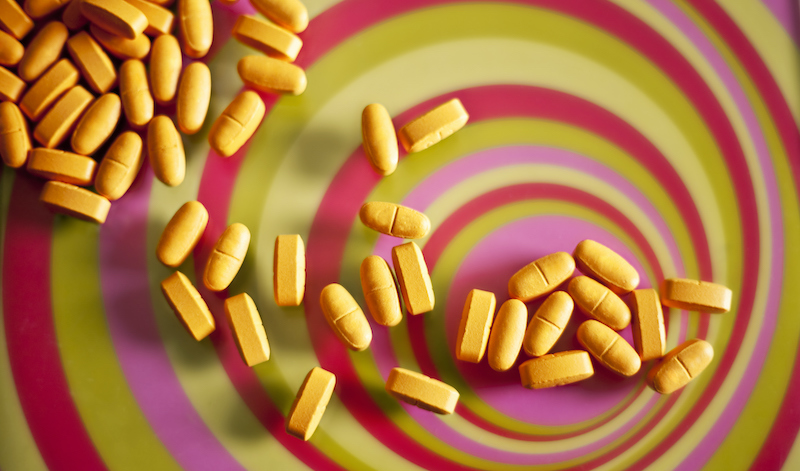By Gabriel García March 15, 2023
Addiction is a serious public health problem that causes the loss of millions of disability-adjusted life years each year. Although conventional addiction treatments, such as behavioral therapy and psychotropic drugs, are available, their effectiveness is often limited and they carry numerous side effects and health risks. This has led researchers to explore alternative treatments, such as psychedelic-assisted psychotherapy.
According to the book Essential Guide to the Psychedelic Renaissance by Antón Gomez-Escolar, several psychedelic substances are being studied for their potential to treat addiction, such as psilocybin, ibogaine, MDMA, DMT and LSD. These substances have proven effective in treating addictions to substances such as alcohol, tobacco, heroin and cocaine, as well as behavioral addictions.
What is addiction?
Addiction is defined in the latest edition of the Diagnostic and Statistical Manual of Mental Disorders (DSM-5) as a pathological pattern of behaviors related to persistent drug (including alcohol) use despite substantial harms and adverse consequences. The underlying change in brain circuitry that persists after detoxification is responsible for the intense cravings and repeated relapses experienced by people with severe disorders.
 Image source: sdtreatmentmentcenter.com
Image source: sdtreatmentmentcenter.com
Psychedelic-assisted psychotherapy is a promising treatment model for addiction because it addresses the psychological root causes. Addiction, like depression and PTSD, manifests psychologically through rigid patterns of thought and behavior, and often develops in response to voids or trauma. Psychedelic substances, used under controlled conditions and with the guidance of trained professionals, have been found to help patients break out of these patterns and gain new insights into their behavior.
Psychedelics and addiction
Several clinical trials have been conducted to explore the potential of psychedelic-assisted psychotherapy in the treatment of addiction. For example, a pilot study of the 5-HT2AR agonist psilocybin in the treatment of tobacco addiction found that following experimental therapy, 12 of 15 participants (80%) quit smoking and remained abstinent for at least 6 months. This quit rate far exceeds that of other behavioral or pharmacological therapies.
Although the open-label design of the study precluded drawing definitive conclusions about the efficacy of psilocybin, the results suggest that psilocybin may be a potentially effective adjunct to cognitive-behavioral therapy for smoking cessation.
Another substance being studied for its potential in addiction treatment is ibogaine, a naturally occurring psychoactive substance found in the African iboga bush. Several studies have found ibogaine to be effective in treating opiate addiction and reducing withdrawal symptoms, although it is not without risk.
MDMA, commonly known as ecstasy, has also shown promise in treating addiction. In a study of 10 participants with severe PTSD and alcohol use disorder, MDMA-assisted psychotherapy was effective in reducing alcohol use and PTSD symptoms. After three sessions of MDMA-assisted psychotherapy, eight out of 10 participants no longer met criteria for alcohol use disorder.
 Image source: forbes.com
Image source: forbes.com
Although the use of psychedelic substances in the treatment of addictions is promising, it is a field yet to be explored. All this information was taken from the Essential Guide to the Psychedelic Renaissance, now available on Amazon. However, we also recommend Psychedelics and Mental Health, by Irene de Caso and Your Brain on Psychedelics, by Genís Oña, where you will learn the keys to the effects of psychedelics, capable of producing significant changes in the processes of perception, thought and consciousness. The book also includes a prologue written by one of the greatest eminences in this field, José Carlos Bouso, scientific director of ICEERS.
These books are now available on Amazon in physical and eBook format, as well as Apple Books. In addition, all titles are available in Spanish version on GuiasdelPsiconauta.com
All the information in this article has been taken from the Essential Guide to the Psychedelic Renaissance, now available on Amazon





